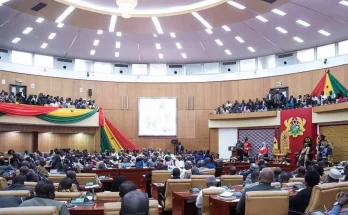Nigeria Postpones Binance $81.5bn Tax Trial to April 30. A Federal High Court in Nigeria has adjourned proceedings in the high-profile tax case against cryptocurrency giant, Binance Holdings Ltd., to April 30, 2025.
The adjournment follows an application by Binance challenging the court’s earlier decision that allowed the Federal Inland Revenue Service (FIRS) to serve legal documents through electronic mail.
Binance Challenges Mode of Legal Notice
Appearing before the court, Binance’s legal counsel, Chukwuka Ikwuazom (SAN), argued that the February 11, 2025 order enabling substituted service via email was “procedurally flawed.”
He contended that Binance, being a foreign entity incorporated in the Cayman Islands with no physical or operational presence in Nigeria, should have been served through a court-approved international process.
“The order for substituted service granted by this Honourable Court on February 11, 2025, is irregular and should be vacated,” Ikwuazom submitted.
FIRS Seeks $81.5 Billion for Alleged Tax and Economic Violations
The Federal Inland Revenue Service has filed a tax enforcement and economic misconduct claim against Binance, demanding $2 billion in unpaid corporate taxes and an additional $79.5 billion in economic damages.
FIRS maintains that Binance’s peer-to-peer crypto trading activities have caused significant harm to Nigeria’s macroeconomic environment, notably through the devaluation of the naira and the facilitation of unregulated capital flight.
Nigeria Gazettes ECOWAS Tariff Schedule, Deepens Commitment to AfCFTA Trade Framework
Exchange Accused of Disrupting Monetary Stability
In its case, FIRS argues that Binance played a role in currency speculation, allowing traders to bypass official forex channels and accelerate the naira’s fall.
According to the agency, this conduct has contributed to increased market volatility, weakened regulatory oversight, and worsened inflation, which reached nearly 30% in early 2024.
Nigerian Operations in Focus Despite No Local Office
Despite lacking a registered Nigerian office, Binance reportedly facilitated over $21.6 billion in cryptocurrency transactions within the country in 2023 alone.
FIRS considers this volume of activity as constituting a “significant economic presence” under Nigeria’s tax laws, thereby subjecting the platform to company income tax, penalties, and statutory interest based on the Central Bank’s benchmark rate.
Implications for Cross-Border Tax Compliance
Tax analysts have noted that this case could set a precedent for how Nigeria—and possibly other African jurisdictions—apply domestic tax laws to foreign digital platforms operating within their markets.
If successful, the FIRS’s approach may reinforce efforts to implement digital tax frameworks, particularly in situations where multinational tech or finance companies operate without physical offices but generate sizable revenues locally.
Nigeria Postpones Binance $81.5bn Tax Trial to April 30: Binance Yet to Issue Fresh Response
While Binance has previously indicated willingness to cooperate with Nigerian authorities, the company has not released a statement in response to the latest court developments.
The court has fixed April 30, 2025 for the continuation of the matter, pending a decision on whether the mode of service was lawful.




